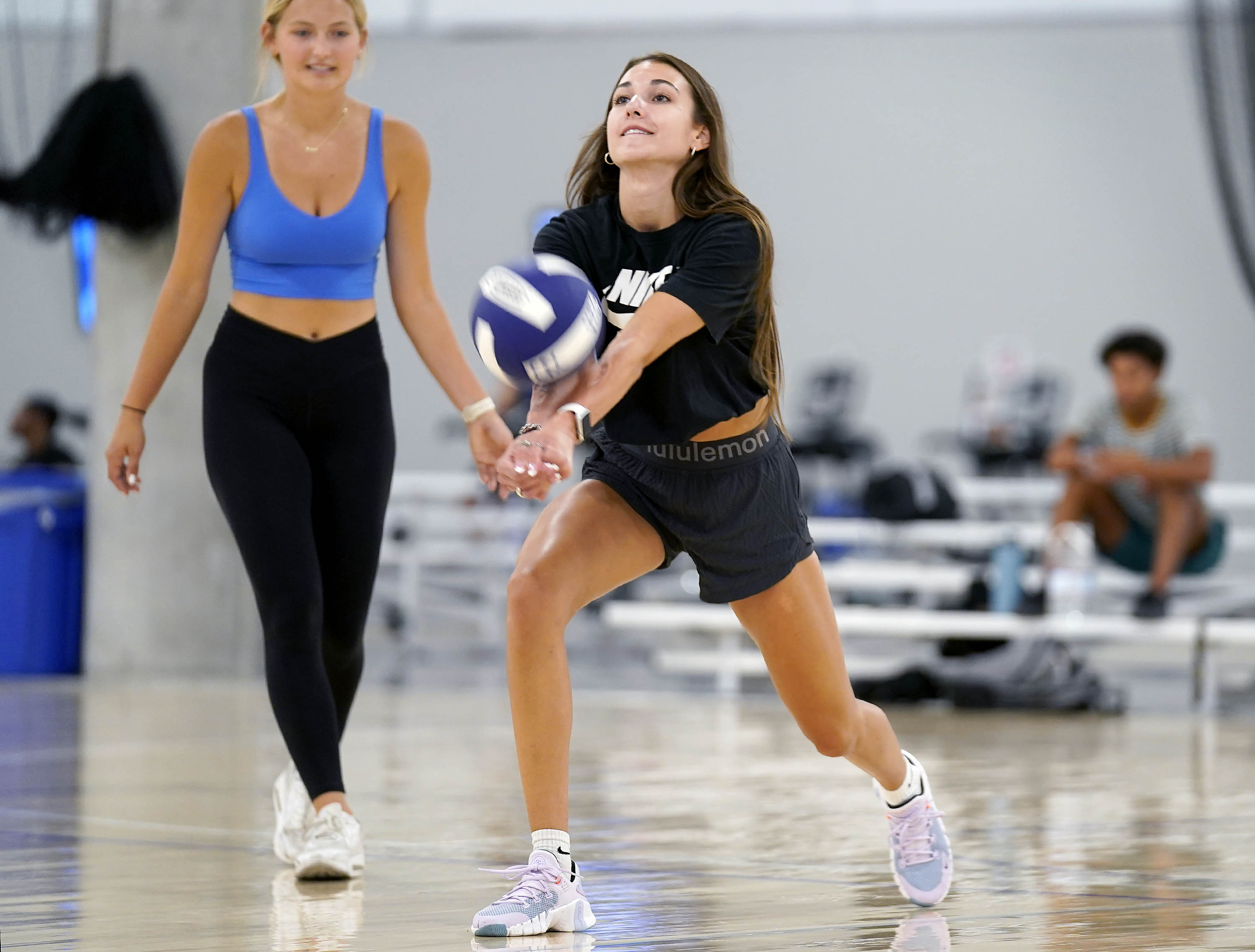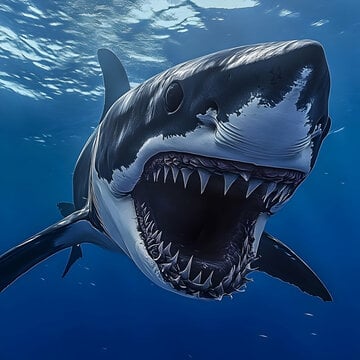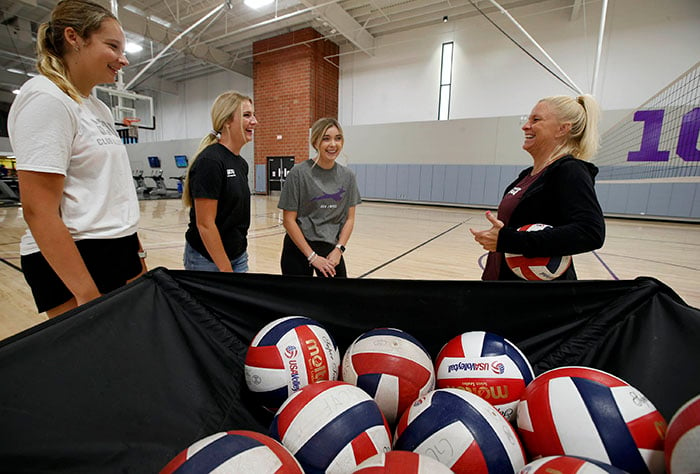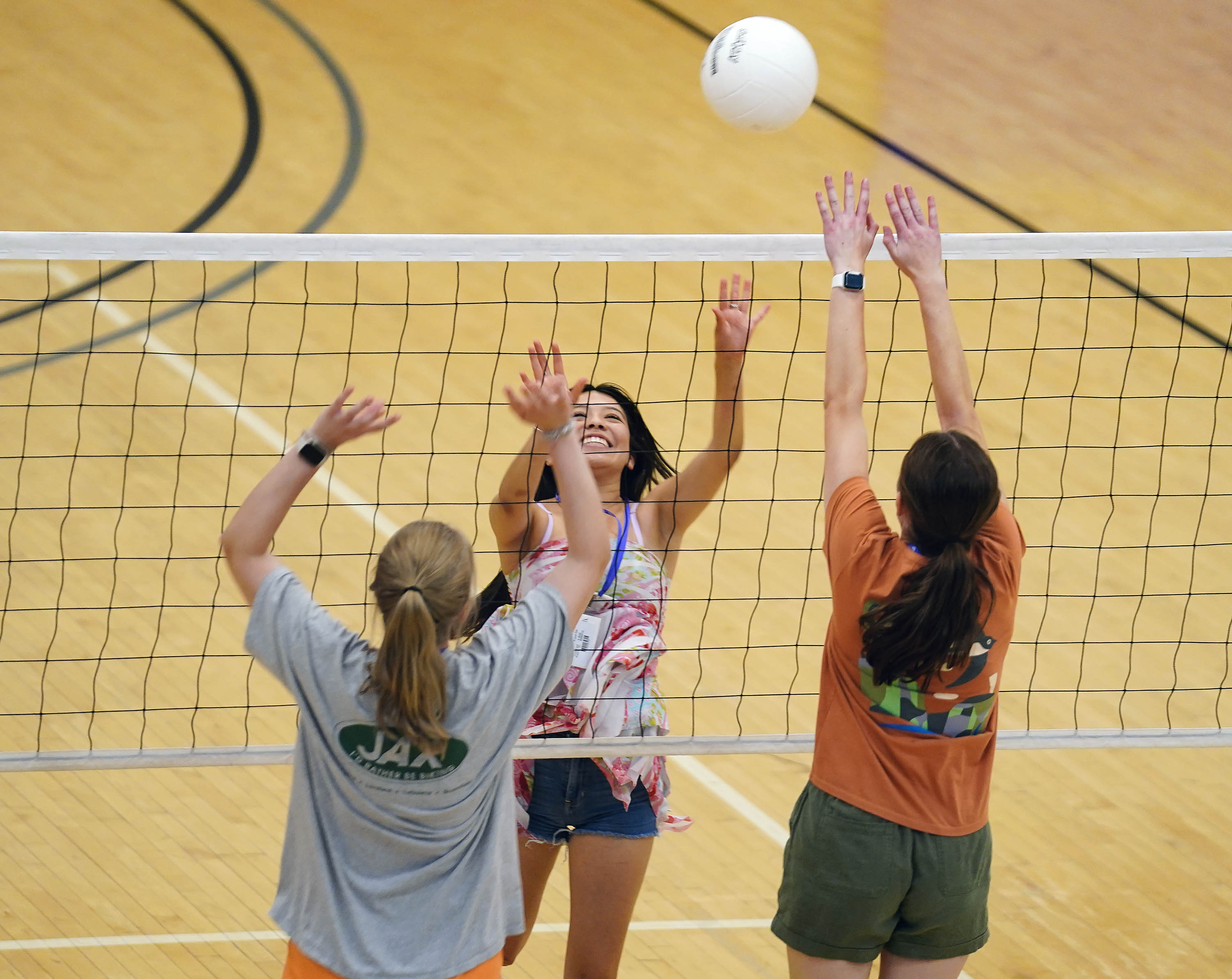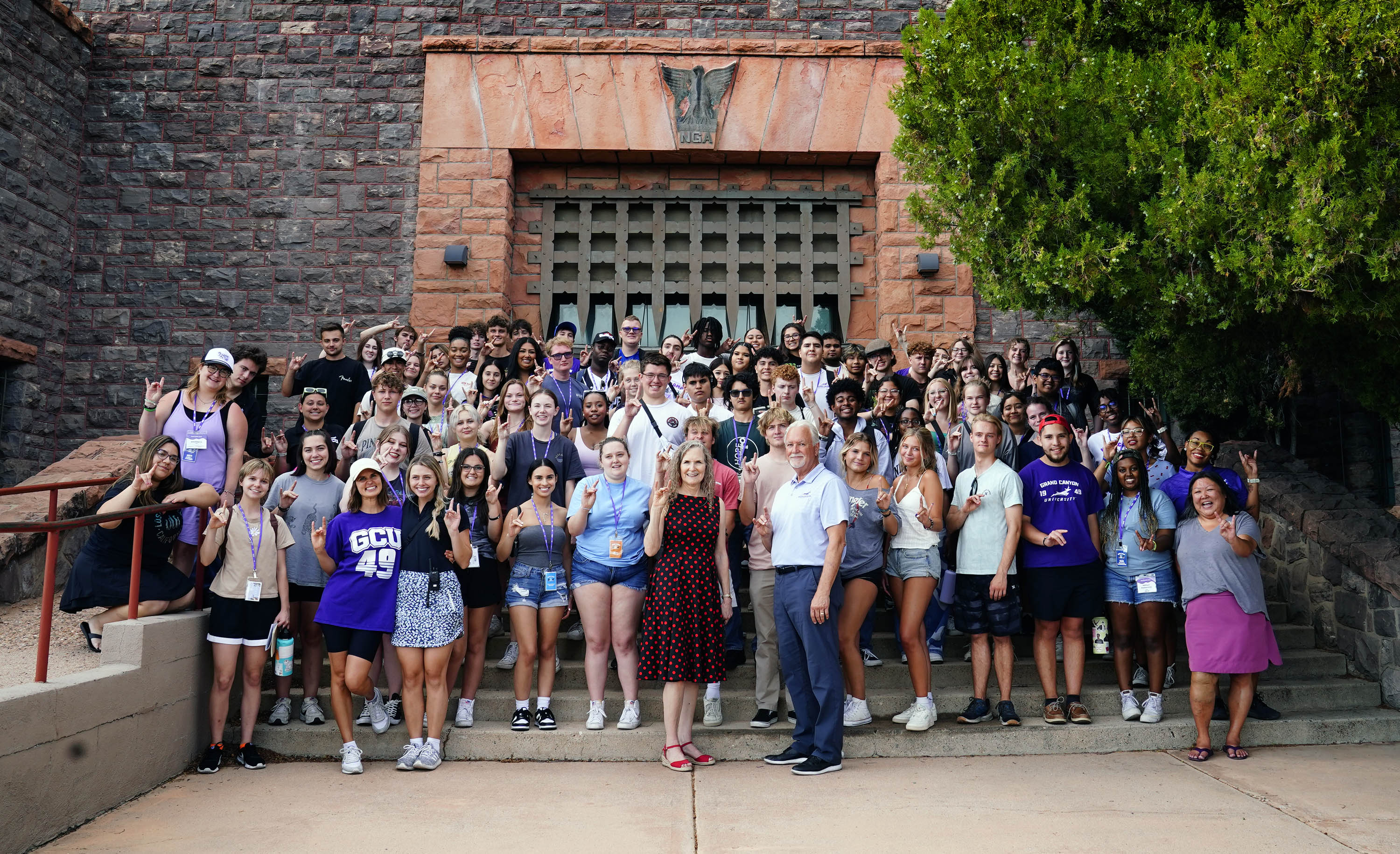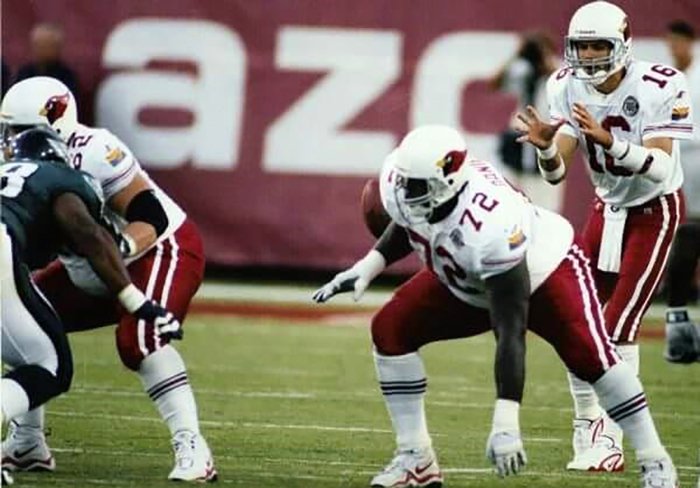
Story by Lana Sweeten-Shults
GCU News Bureau
In high school, Jerome Daniels didn’t know much about football.
He played tennis. He played basketball. He was a swimmer and threw the shot put and discus in track.
It wasn’t until his senior year that football found him.
“I only joined football because they said I could get a scholarship,” said the 6-foot-5 Daniels, who was built to annihilate some defensive linemen.
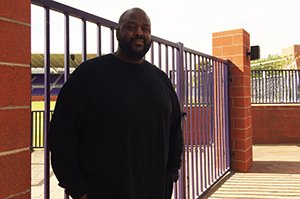
The retired Miami Dolphins, Baltimore Ravens and Arizona Cardinals offensive lineman didn’t bank on an athletic career as the end goal; for him, it was a means to an end.
Instead, he always had his eye on getting an education. It was something Daniels, a counseling manager in Grand Canyon University's doctoral department, never has allowed to fall into the background of his life. He is two years into the doctoral degree process, working to earn his Ph.D. in general psychology with an emphasis in performance psychology.
“I didn’t know anything about the game (of football),” Daniels said on a recent November morning. “I knew video games but didn’t know much about what I was supposed to do. They told me I was going to be an offensive tackle and defensive tackle. I didn’t know what that was, so I went to the library and looked it up.”
Daniels learned about football on the fly and played the game for that one year of high school, never thinking he was any good at it.
“I started getting recruited by a lot of schools around the country. … Those coaches, I had no idea who they were because I didn’t watch football on TV. ... I guess I was supposed to be highly nervous and impressed. But I wasn’t. I kind of took it for what it was. I just wanted to go to the best university to get a degree. You know, football was secondary.”
He accepted a scholarship to Northeastern University in Boston, even though everyone he knew thought he was crazy to pick a school that wasn't known for the game. The university’s head coach told Daniels that football wasn’t very big at Northeastern but that the school was “highly academic and you can get a degree.”
Daniels was sold.
The Hartford, Conn., native can’t really pinpoint when he decided to follow an educational path. His father had a ninth-grade education, and after Daniels was born, his mother went straight into the workforce to help support the family, working as a paralegal for 35 years.
“I didn’t know education was important,” Daniels said. “But I KNEW it was important. Does that make sense? I never pushed myself that much in high school. I just knew I needed to go to college.”
Daniels took computer-aided drafting in high school and majored in architecture when he got to college, “until the math hit me,” he said, then switched to English literature and elementary education. He wanted to be a teacher and, eventually, a university dean.
“I still have those aspirations,” he said with a smile.
He earned his English literature degree, though he didn't quite complete the requirements for his elementary education degree.
That's when football called.
Daniels became first-team all-American and first-team all-conference and was the first Northeastern player to make the East-West Shrine Game. Because of that game, he was invited to the NFL Scouting Combine, a showcase of physical and mental tests performed before coaches, general managers and scouts.
“I got drafted by the Miami Dolphins, and that was just a rude awakening to football at that point, because it’s a business," he said.
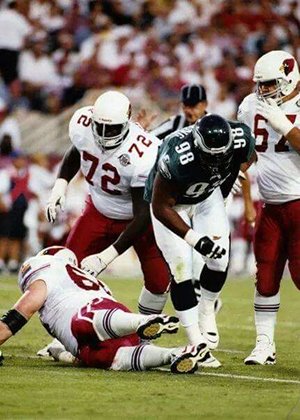
But his football career -- he played for the Cardinals for four seasons -- was beset by numerous injuries.
“It wasn’t what I wanted it to be. But I was able to play my five years and get that in. I tore my patellar tendon, dislocated my elbow and had numerous foot surgeries. I’ve had 11 knee surgeries.”
Daniels retired in 2004, though with all his injuries, he said he was done with professional football in 2000.
After his retirement, he worked as a business development manager for several fire and security companies and has maintained his real estate license for 16 years. He also coached college football for seven years.
It was when he was working out after resigning as head football coach at Phoenix College that someone heard him talking about getting his doctoral degree. That’s when Grand Canyon University came up.
“This is a great environment, and it’s grown so much,” said Daniels, who remembers the four or five buildings that were here when he serviced the campus as a fire and security company manager. “… I’m really appreciative to be a part of something that’s growing and something that’s so substantial for the neighborhood and this whole community. And then the kids that come out of here are just amazing. They all have a good foundation, and they learn about service and servant leadership.”
Daniels' dissertation in performance psychology – the field of study focuses on the human factors that push people to reach their goals -- is on understanding how professional athletes transition out of the NFL when it’s not their choice to do so, such as when they have injuries or have been cut by their team.
“How do people flourish in that? … I’m going to do interviews with guys who have been involuntarily retired but are flourishing in their life – and flourishing is not monetary. It’s a feeling of fulfillment, being in a good place and going in the right direction.”
Daniels will send a questionnaire to 100 players and will pick 10 to include in his study. Then he’ll use a “flourishing scale” to define who’s flourishing in life.
He wants to bring the results to the NFL and show the organization, “These are the things they did while they were playing. These are the things they’re doing right now. Let’s try to mimic those things with the rest of the guys and get involved so that when they transition, they’re in the right place.
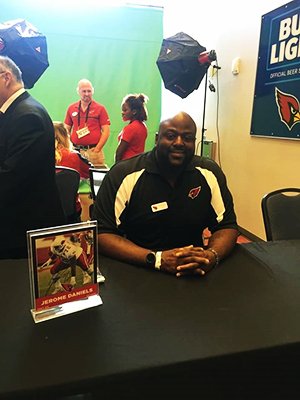
“We have a lot of people who are dealing with head injury issues, who are dealing with a lot of the psychological issues, people who are killing themselves. All those things stem from not feeling good and not understanding how to cope with those kinds of stressors.”
Daniels expects to complete the doctoral process in two years, all while fulfilling his duties as a GCU staff member. He keeps busy managing a team of university counselors who support the campus’ doctoral learners, from filling out the application, to completing the letter of intent, helping them manage their time and more.
Despite all his responsibilities, he continues to take steps to get his doctorate.
“First thing is making my mother proud,” said Daniels, whose mother earned her college degree when she was in her 50s. “She works so hard. I want her to know that her sacrifice of not going to college and raising me and raising my brothers, that I will do everything to get to the highest point I can so that she knows that it was not a waste.”
He said he wants to be an example to his children, who will not have an excuse to not pursue their education (Daniels’ daughter also attends GCU). He wants to help athletes who are struggling with those big life transitions. And, ultimately, he also wants to give people a "different perception of what pro athletes are and what they can accomplish outside of the field.”
Contact GCU senior writer Lana Sweeten-Shults at (602) 639-7901 or lana.sweeten-shults@gcu.edu. Follow her on Twitter @LanaSweetenShul.

